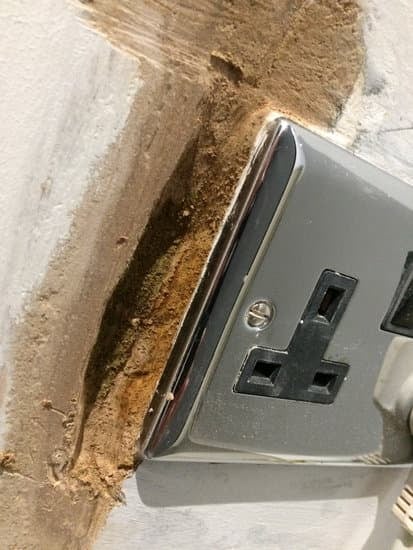Are you wondering, “Does Arkansas Medicaid pay for handicap home improvements?” Individuals with disabilities often face financial challenges when it comes to making necessary modifications to their homes. In this article, we will explore the importance of handicap home improvements and delve into the coverage provided by Arkansas Medicaid. From eligibility requirements to applying for coverage, we will provide a comprehensive overview to help individuals make informed decisions about accessing financial assistance.
For individuals with disabilities, navigating daily life can be challenging, especially when their living environment is not suited to their specific needs. Handicap home improvements play a crucial role in enhancing accessibility and independence for these individuals. However, the financial burden of making these modifications can be overwhelming. This article aims to shed light on the options available through Arkansas Medicaid to alleviate some of these financial challenges.
Arkansas Medicaid offers a range of services and coverage for eligible individuals, including provisions for handicap home improvements. In the following sections, we will delve into the specific types of home improvements covered by Arkansas Medicaid, the eligibility requirements, and steps for applying for coverage. Additionally, we will explore alternative sources of financial assistance for those who may not qualify for Medicaid coverage or require additional support beyond what is provided.
Overview of Arkansas Medicaid
Arkansas Medicaid is a state and federally funded program that provides healthcare coverage to eligible low-income individuals, including those with disabilities. The program aims to ensure that individuals have access to necessary medical services, as well as additional support for home improvements that can enhance their quality of life. Arkansas Medicaid offers coverage for a variety of home modifications and improvements specifically designed to accommodate individuals with disabilities.
One of the key aspects of Arkansas Medicaid is its comprehensive coverage, which includes services such as in-home care, medical equipment, and home modifications. This means that individuals who qualify for the program have the opportunity to receive financial assistance for handicap home improvements that are essential for their daily living.
These modifications may include the installation of ramps, grab bars in bathrooms, widened doorways for wheelchair accessibility, and other necessary changes to ensure a safe and supportive living environment.
In order to be eligible for Arkansas Medicaid coverage for handicap home improvements, individuals must meet certain criteria related to income level, disability status, and residency in the state. Additionally, there may be specific requirements related to the type and extent of the home modifications being requested. It is important for individuals to thoroughly review the eligibility requirements and seek guidance from Arkansas Medicaid representatives or healthcare professionals if needed.
| Home Improvement Covered | Description |
|---|---|
| Ramps | Installation of ramps to provide wheelchair accessibility. |
| Grab Bars | Addition of grab bars in bathrooms for safety and support. |
| Widened Doorways | Modifications to doorways to accommodate wheelchairs or mobility aids. |
Types of Home Improvements Covered
The Types of Home Improvements Covered by Arkansas Medicaid include a wide range of modifications and renovations that are designed to make homes more accessible and functional for individuals with disabilities. Some of the specific types of handicap home improvements that may be covered by Arkansas Medicaid include ramps, grab bars, widened doorways, roll-in showers, stairlifts, and other accessibility features. These modifications are intended to help individuals with disabilities live independently and navigate their homes safely.
In order for these home improvements to be covered by Arkansas Medicaid, they must be deemed medically necessary. This means that the modifications must be directly related to the individual’s disability and essential for their health and well-being. Additionally, the home improvements must be cost-effective, which means that they cannot exceed a certain amount unless prior approval is obtained.
| Types of Home Improvements Covered | Description |
|---|---|
| Ramps | Modifications intended to improve access into or within the home. |
| Grab Bars | Installed in bathrooms or other areas to assist with stability and mobility. |
| Widened Doorways | Enlargement of door frames to accommodate wheelchairs or walkers. |
Eligibility Requirements
Arkansas Medicaid has certain eligibility requirements that individuals must meet in order to qualify for coverage for handicap home improvements. It is important to understand these requirements before applying for Medicaid coverage, as they can vary depending on the individual’s specific situation. Here are some key eligibility criteria to consider:
- Income Limit: Arkansas Medicaid has income limits that individuals must meet in order to be eligible for coverage. These limits are based on the Federal Poverty Level (FPL) and may vary depending on the individual’s household size and other factors.
- Disability Status: Individuals seeking coverage for handicap home improvements must have a documented disability that significantly impacts their daily living activities. Proof of disability may be required as part of the application process.
- Citizenship or Legal Residency: Applicants must be U.S. citizens, nationals, or qualified immigrants with legal residency status in order to be eligible for Arkansas Medicaid coverage.
In addition to these general requirements, there may be specific criteria related to the type of home improvement being sought. For example, individuals applying for coverage for wheelchair ramps may need to provide documentation from a healthcare provider confirming the medical necessity of such an improvement.
It is important to note that eligibility requirements can change over time, so individuals interested in applying for Arkansas Medicaid coverage should always check with the program’s official website or contact its representatives directly for the most up-to-date information. By understanding and meeting these eligibility requirements, individuals can increase their chances of receiving financial assistance for handicap home improvements through Arkansas Medicaid.
Applying for Coverage
Understanding the Application Process
Applying for Arkansas Medicaid coverage for handicap home improvements can seem like a daunting task, but with the right guidance, individuals can navigate the process successfully. The first step is to gather all necessary documentation, including proof of income, disability status, and residency in Arkansas. It’s important to carefully review the eligibility requirements to ensure that you meet the criteria before submitting an application.
Completing the Application
The next step is to complete the Arkansas Medicaid application form, providing accurate and detailed information about your disability and the specific home improvements you require. For individuals who may need assistance with filling out the application, it’s advisable to seek help from a trusted family member, caregiver, or social worker who can offer support throughout the process.
Navigating the Approval Process
Once the application has been submitted, individuals will need to wait for a response from Arkansas Medicaid regarding their coverage for handicap home improvements. It’s important to stay informed about the status of your application and be prepared to provide any additional information or documentation if requested.
In some cases, a home assessment may be required to determine the specific modifications needed for your residence. Understanding and following through with each step of the approval process can increase the likelihood of receiving Medicaid coverage for handicap home improvements.
Other Financial Assistance Options
Grants
In addition to Arkansas Medicaid, individuals with disabilities may also explore the option of applying for grants to assist with home improvements. There are various public and private organizations that offer grant programs specifically aimed at providing financial assistance for accessibility modifications in homes.
These grants may cover the costs of installing ramps, widening doorways, or making other necessary adjustments to accommodate individuals with disabilities. It is important to research and apply for these grant opportunities as early as possible, as they often have specific eligibility requirements and application deadlines.
Community Organizations
Community organizations and local non-profits can also be valuable resources for individuals seeking financial assistance for handicap home improvements. These organizations may offer support in the form of funding, volunteer labor, or discounted materials and services.
Additionally, community groups focused on disability advocacy or independent living may be able to provide guidance on navigating the process of securing financial assistance for home modifications. By reaching out to these organizations, individuals can access a network of support and expertise that can greatly aid in addressing their specific needs.
Non-Profit Agencies
Many non-profit agencies dedicated to supporting individuals with disabilities provide programs and services designed to help with home modifications. These agencies may offer financial assistance, technical expertise, or connections to local resources that can facilitate the process of making necessary improvements to a person’s living environment.
Non-profit agencies often work closely with individuals to assess their unique needs and develop a plan for making their homes more accessible. By exploring the offerings of these organizations, individuals can gain access to a range of supportive services that go beyond what is typically covered by traditional insurance or government programs like Medicaid.
Success Stories
One of the most impactful ways to understand the benefits of Arkansas Medicaid coverage for handicap home improvements is through hearing real-life success stories from individuals who have directly benefited from such assistance. These stories not only showcase the positive impact that Medicaid coverage has had on their lives but also provide inspiration and hope for others facing similar challenges.
Here are some compelling success stories that highlight the transformative effect of Arkansas Medicaid coverage for handicap home improvements:
- John’s Story: John, a resident of Little Rock, Arkansas, was diagnosed with a physical disability that made it challenging for him to navigate his home independently. With the help of Arkansas Medicaid, John was able to receive coverage for the installation of a wheelchair ramp at his front entrance, as well as grab bars in his bathroom.
These modifications empowered John to move freely throughout his home and regain a sense of independence that he had thought was lost. He is now able to live more comfortably and confidently thanks to the support provided by Arkansas Medicaid. - Sarah’s Story: Sarah, a young woman living in Fayetteville, Arkansas, faced daily obstacles due to limited mobility caused by her disability. Despite her determination to live on her own, Sarah struggled with basic tasks such as entering and exiting her home safely. However, after being approved for Arkansas Medicaid coverage for handicap home improvements, Sarah received funding for the installation of widened doorways and handrails throughout her residence.
These modifications significantly improved her ability to move around her home independently and perform daily activities with ease. The support provided by Arkansas Medicaid has truly enhanced Sarah’s quality of life and fostered a sense of freedom and autonomy.
These success stories underscore the profound impact that Arkansas Medicaid coverage for handicap home improvements can have on individuals with disabilities. By sharing these narratives, we hope to inspire others to explore their options for obtaining similar financial assistance and advocate for their right to access resources that can improve their quality of life.
Ultimately, these stories serve as a reminder that Arkansas Medicaid has been instrumental in creating positive change and fostering independence for individuals with disabilities. It is important to celebrate these successes and continue advocating for accessible resources that can make a meaningful difference in people’s lives.
Conclusion
It is important to recognize the financial challenges that individuals with disabilities face when it comes to making necessary home improvements to accommodate their specific needs. Arkansas Medicaid provides a comprehensive program that aims to support individuals with disabilities by offering coverage for certain types of handicap home improvements. By understanding the types of improvements covered, eligibility requirements, and application processes, individuals can explore their options for obtaining financial assistance and improving their living conditions.
The Arkansas Medicaid program covers a range of handicap home improvements such as ramps, grab bars, widened doorways, and other modifications that are essential for individuals with disabilities to navigate their homes safely and comfortably. Eligibility requirements include meeting income thresholds, having a documented disability, and demonstrating a need for the specific home improvement. It is essential for individuals to carefully review these requirements and gather the necessary documentation before applying for coverage.
In addition to Arkansas Medicaid, there are other potential sources of financial assistance for handicap home improvements. This can include grants, community organizations, and non-profit agencies that specifically focus on supporting individuals with disabilities.
By exploring these alternative options, individuals may find additional resources that can contribute to making necessary improvements to their homes. Overall, it is crucial for individuals with disabilities to be proactive in seeking financial assistance and exploring all available avenues in order to improve their living conditions and enhance their overall quality of life.
Resources
In conclusion, while navigating the financial challenges of making handicap home improvements can be daunting, it is important for individuals with disabilities to explore their options for obtaining financial assistance. Arkansas Medicaid offers coverage for a variety of home improvements such as ramps, grab bars, and widened doorways, providing essential support for those in need. It is crucial for individuals to understand the eligibility requirements and application process in order to take advantage of this valuable resource.
Additionally, it is worth considering other potential sources of financial assistance beyond Arkansas Medicaid. Grants, community organizations, and non-profit agencies may also offer support for handicap home improvements. By researching and exploring these additional options, individuals can increase their chances of receiving the necessary assistance to make their living spaces more accessible and accommodating.
Furthermore, hearing about real-life success stories from individuals who have benefited from Arkansas Medicaid coverage for handicap home improvements can provide encouragement and inspiration. These testimonies highlight the positive impact that financial assistance can have on improving the quality of life for those with disabilities. It is important for individuals to remain hopeful and proactive in seeking out the support they need to create a safe and comfortable living environment.
Frequently Asked Questions
What Does Arkansas Medicaid Pay For?
Arkansas Medicaid pays for a wide range of medical services including doctor visits, hospital care, prescriptions, mental health services, and long-term care for eligible low-income individuals and families. It also covers preventative services like immunizations, screenings, and family planning as well as transportation to and from medical appointments.
Does Arkansas Medicaid Have OTC?
Yes, Arkansas Medicaid does have an Over-the-Counter (OTC) benefit for certain items such as vitamins, pain relievers, cough medicine, and first aid supplies. This benefit allows members to purchase these items without needing a prescription at participating pharmacies.
Is Arkansas Works the Same as Medicaid?
Arkansas Works is the state’s Medicaid expansion program that provides health insurance coverage to low-income adults who do not qualify for traditional Medicaid but still meet certain income requirements. While it is part of the larger Medicaid program, it is specifically tailored to provide coverage for this particular population and has its own set of eligibility criteria.

I’m thrilled to have you here as a part of the Remodeling Top community. This is where my journey as an architect and remodeling enthusiast intersects with your passion for transforming houses into dream homes.





